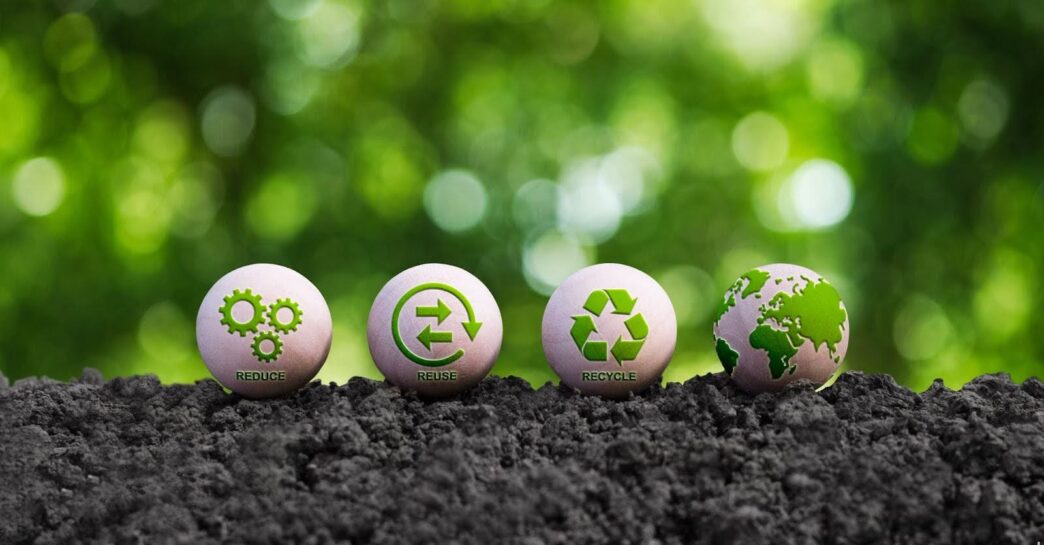In an era where sustainability is paramount, industries are increasingly turning to solvent recycling as a pivotal strategy to minimize waste and safeguard the environment. A recent article on The Press Circuit delves into the multifaceted benefits of solvent recycling, highlighting its transformative impact across various sectors.
Solvents are indispensable in numerous industries, serving as agents for dissolving, cleaning, and facilitating chemical reactions. However, their widespread use has historically led to significant environmental challenges, particularly concerning disposal.
The improper handling of waste solvents can result in soil contamination, water pollution, and air quality degradation. Recognizing these challenges, industries are adopting solvent recycling to mitigate environmental harm and promote resource efficiency.
Diverse Applications and Use Cases of Solvent Recycling
Solvent recycling is not a one-size-fits-all solution; its applications are as varied as the industries it serves. By implementing tailored recycling processes, businesses can recover and reuse solvents, leading to substantial environmental and economic benefits.
- Pharmaceutical Industry
The pharmaceutical sector relies heavily on high-purity solvents for drug formulation and synthesis. Given the stringent purity requirements, solvent recycling in this industry involves advanced purification techniques. By reclaiming solvents, pharmaceutical companies can reduce hazardous waste and lower production costs. For instance, Lonza, a global leader in life sciences, has implemented solvent recovery processes that significantly reduce carbon emissions and promote sustainability. - Automotive and Aerospace Industries
In automotive and aerospace manufacturing, solvents are used extensively for cleaning and surface preparation. Recycling these solvents not only reduces environmental impact but also enhances operational efficiency. Companies have adopted on-site solvent recycling systems, enabling them to reclaim solvents and reduce reliance on virgin materials. This practice leads to cost savings and aligns with environmental regulations. - Printing and Ink Production
The printing industry utilizes solvents in ink formulations and equipment cleaning. Solvent recycling allows printers to recover used solvents, maintaining product quality while minimizing waste. By implementing recycling systems, printing companies can reduce disposal costs and environmental footprint. This approach not only conserves resources but also supports sustainability initiatives. - Paints and Coatings
Manufacturers of paints and coatings use solvents to achieve desired consistency and application properties. Recycling these solvents helps in reducing volatile organic compound (VOC) emissions and hazardous waste generation. By adopting solvent recovery systems, companies can enhance product quality and comply with environmental standards. This practice contributes to a circular economy by reintroducing purified solvents into the production process. - Electronics and Semiconductor Manufacturing
The electronics industry employs solvents for cleaning components and during fabrication processes. Given the high value and purity of these solvents, recycling is both economically and environmentally advantageous. By implementing advanced purification methods, manufacturers can reclaim solvents, reduce waste, and lower production costs. This approach ensures the sustainability of manufacturing processes and aligns with industry best practices. - Laboratories and Research Institutions
Research labs generate solvent waste through various experiments and processes. Implementing in-house solvent recycling systems enables these institutions to reclaim high-purity solvents, reducing procurement costs and hazardous waste disposal. For example, laboratories have adopted solvent distillation units that recover up to 95% of used solvents, achieving purity levels greater than 99%.
Case Studies Highlighting Successful Solvent Recycling Initiatives
Several organizations have pioneered solvent recycling practices, setting benchmarks for sustainability and efficiency.
- ChemGenes Corporation
Specializing in the production of DNA/RNA synthesis reagents, ChemGenes Corporation undertook a comprehensive review of its solvent usage. By implementing a solvent recovery system, the company reduced its annual chloroform use by 61% and hexane use by 42% over a nine-year period. This initiative not only minimized environmental impact but also resulted in significant cost savings. - Allston Collision Center
An auto body repair shop, Allston Collision Center transitioned to water-based paints and installed a solvent recycling machine. These efforts led to a reduction in volatile organic compounds (VOCs) and solvent usage, while also decreasing annual operational costs. The center’s commitment to sustainable practices has enhanced its reputation and operational efficiency.
Environmental and Economic Benefits of Solvent Recycling
The adoption of solvent recycling offers a multitude of advantages:
- Waste Reduction
Recycling solvents decreases the volume of hazardous waste requiring disposal, thereby lessening environmental pollution and conserving landfill space. This practice contributes to environmental preservation and aligns with waste management regulations. - Resource Conservation
By reclaiming solvents, industries reduce the demand for virgin solvent production, conserving natural resources and energy. This approach supports sustainable resource management and reduces the environmental footprint of manufacturing processes. - Cost Savings
Reusing solvents diminishes the need for purchasing new materials and lowers waste disposal expenses, leading to significant financial benefits. Companies can reinvest these savings into further sustainability initiatives or operational improvements. - Regulatory Compliance
Implementing solvent recycling assists businesses in adhering to environmental regulations, thereby avoiding potential fines and enhancing corporate responsibility. Compliance with regulations also fosters positive relationships with stakeholders and the community.
Encouraging Broader Adoption of Solvent Recycling
The success stories and benefits associated with solvent recycling underscore its potential as a standard practice across industries. To facilitate broader adoption, companies are encouraged to:
- Assess Solvent Usage
Conduct thorough evaluations of solvent consumption and waste generation to identify opportunities for recycling and process optimization. This assessment serves as a foundation for implementing effective recycling strategies. - **Invest in Advanced Recycling Technologies**
Companies should explore modern recycling technologies such as distillation, filtration, and adsorption to enhance solvent recovery efficiency. Investing in automated recycling systems can streamline processes and improve solvent purity, making recycling a seamless part of operations.
- Educate and Train Employees
Employee awareness and training are crucial for successful solvent recycling implementation. Organizations should educate their workforce on best practices, proper handling, and the benefits of recycling solvents. Well-informed employees can contribute significantly to efficient recycling efforts. - Partner with Solvent Recycling Experts
Collaborating with specialized recycling service providers can help businesses optimize their solvent recovery processes. Expert consultants can assess facility needs, recommend customized solutions, and ensure compliance with regulatory standards. - Integrate Sustainability into Corporate Goals
Companies can align solvent recycling initiatives with broader sustainability objectives to reinforce their commitment to environmental stewardship. This integration can enhance corporate social responsibility (CSR) efforts and boost brand reputation among environmentally conscious consumers.
A Call to Action: Embracing a Sustainable Future
The shift toward solvent recycling represents a major step forward in the global effort to reduce industrial waste and protect the planet. Industries that implement solvent recovery processes not only minimize their environmental footprint but also gain significant cost savings and operational efficiencies.
By adopting solvent recycling practices, businesses can take an active role in environmental conservation while maintaining efficiency and profitability. The time to act is now—let’s embrace solvent recycling as a key component of a greener and more sustainable industrial future.














